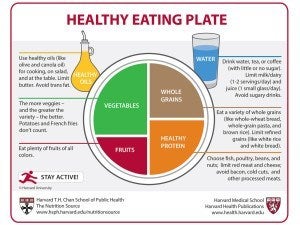
NUTRITION
Nutrition and sleep basics
What and when we eat can help or hinder the quality of our sleep. A Standard American Diet high in processed and refined foods has been linked to a lower quality of sleep...

The Zest Team
· 4 min read
What we eat every day has a major impact on almost everything we experience including energy levels, mood, productivity, metabolic health, and sleep quality.
Our diet is generally made up of macronutrients (fat, protein, and carbohydrates) and micronutrients (vitamins and minerals). It is a modifiable lifestyle factor and positive changes in the quality, amounts, and timing of meals can help to improve sleep and overall health. It’s not just one meal that can make it or break it, just like sleep and everything else in life, consistency is key.
The Food-Sleep connection
What and when we eat can help or hinder the quality of our sleep. A Standard American Diet high in processed and refined foods has been linked to a lower quality of sleep while a diet high in whole foods has been associated with a higher self-reported quality of sleep (1). You can check out how sugar impacts the hormones involved with getting some shut-eye in the article Sugar & Sleep: 5 ways they interact. Beyond that, focusing on specific nutrients to optimize your sleep can help you get the most out of each meal and each night’s rest. Be sure to check out the article 6 Nutrients To Help Promote Sleep!
Balancing - What does a healthy meal look like?
A healthy and balanced diet means you are eating within your calorie range for a healthy weight with a mix of carbohydrate, fat, and protein. According to the Harvard Healthy Eating Plate, this means ½ of your diet should be colorful vegetables and fruit, ¼ whole grains or starchy vegetables, and ¼ protein. The source of these foods does matter as long as you are focusing on whole, unprocessed foods while avoiding highly refined foods, processed meats, added sugars, and trans fats (2). Eating whole foods ensures that we get healthy sources of fat, protein, and fiber. These 3 components help to stabilize blood sugar, which helps to ensure quality sleep.

Timing - When should I eat my meals?
As a general rule, it’s best to have your last meal at least 3 hours before bed to avoid disrupted sleep. Beyond that, the timing of when you should eat your other meals can depend on several factors including your chronotype for time-restricted eating.
Time-restricted eating (or intermittent fasting) has been shown to improve insulin sensitivity, blood pressure, and oxidative stress (3). In another study, short-duration sleepers were more likely to report early eating times along with later eating times (4). Shortening this window, therefore, may help you to optimize your sleep duration and may also have additional health and metabolic benefits!
In summary, we make choices daily on what foods to eat and when to eat them. Given the powerful impact of eating a whole, minimally processed diet within the optimal window of time can have on how our body functions and feels, making some foundational modifications here can be simple, easy, and cost-effective.
Association between the Degree of Processing of Consumed Foods and Sleep Quality in Adolescents
The aim of this study was to evaluate the association between food consumption by the degree of processing and sleep quality in adolescents from São Luís, Maranhão, Brazil. A cross-sectional study with 2499 adolescents (aged 18 ...

Healthy Eating Plate
Use the Healthy Eating Plate as a guide for creating healthy, balanced meals—whether served at the table or packed in a lunch box. Click on each section of the interactive image below to learn more…

Early Time-Restricted Feeding Improves Insulin Sensitivity, Blood Pressure, and Oxidative Stress Even without Weight Loss in Men with Prediabetes
Intermittent fasting (IF) improves cardiometabolic health; however, it is unknown whether these effects are due solely to weight loss. We conducted th…

Association of self-reported sleep duration with eating behaviors of American adults: NHANES 2005–2010
Background: Published evidence suggests an inverse association between sleep duration and body weight status.Objective: We examined the association of sleep duration with eating behaviors reported by adult Americans to understand the relation between ...

NUTRITION
#ZESTTEAM




